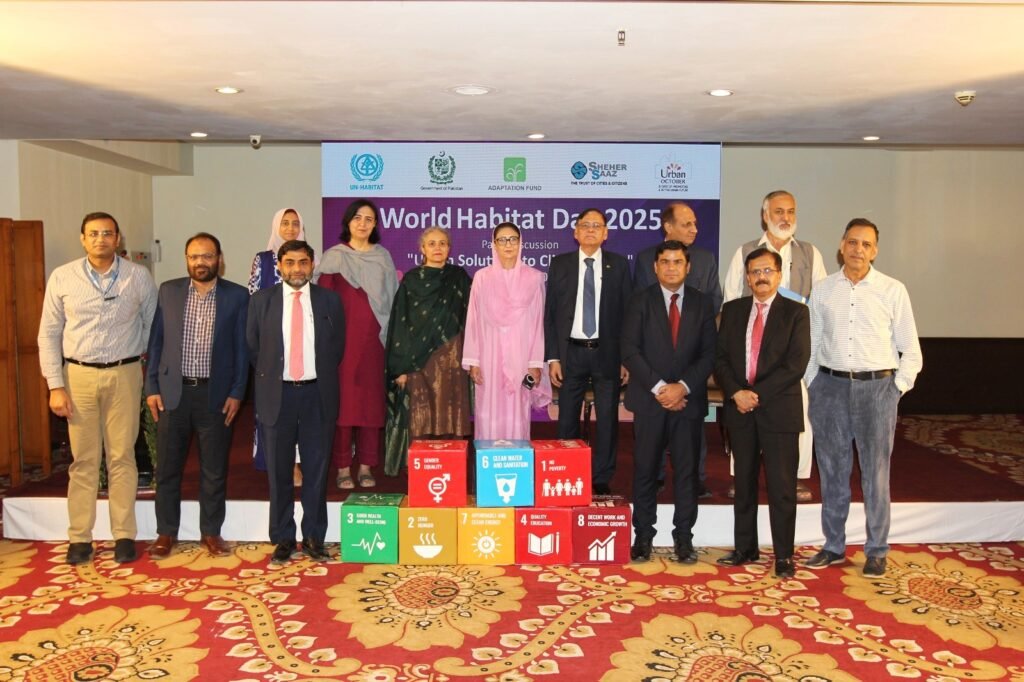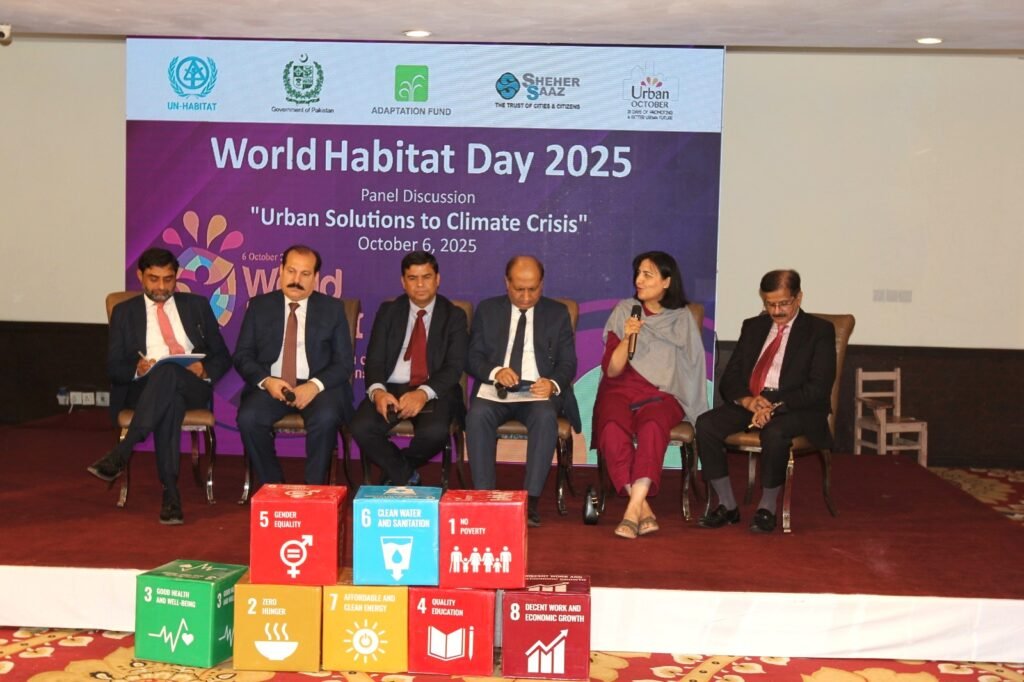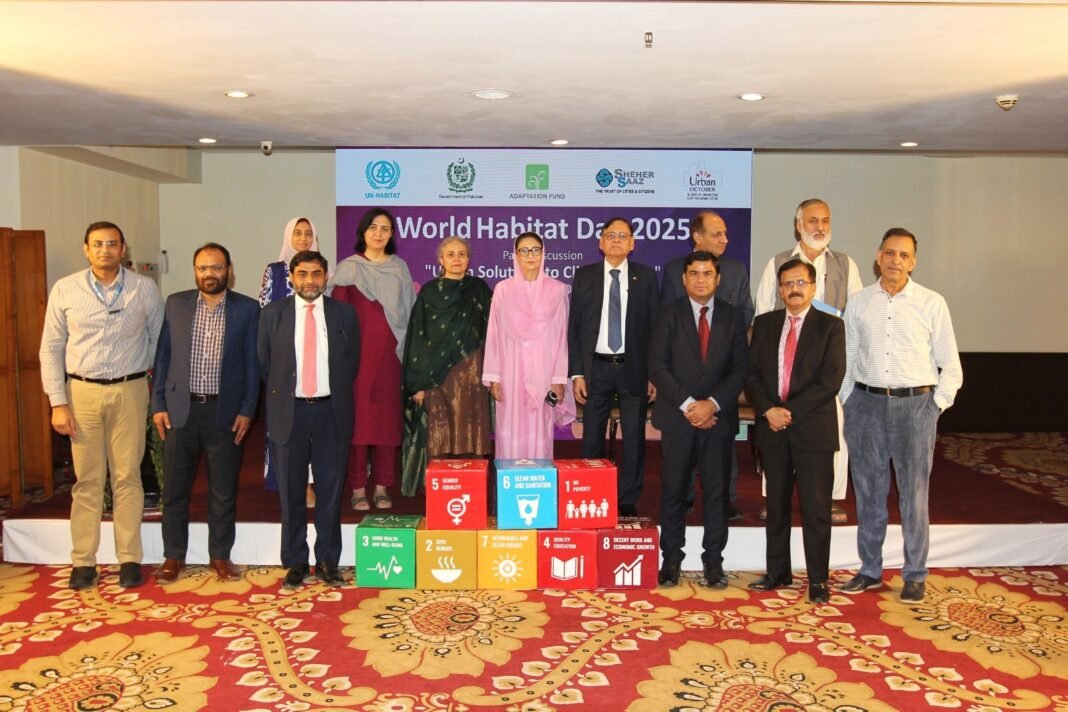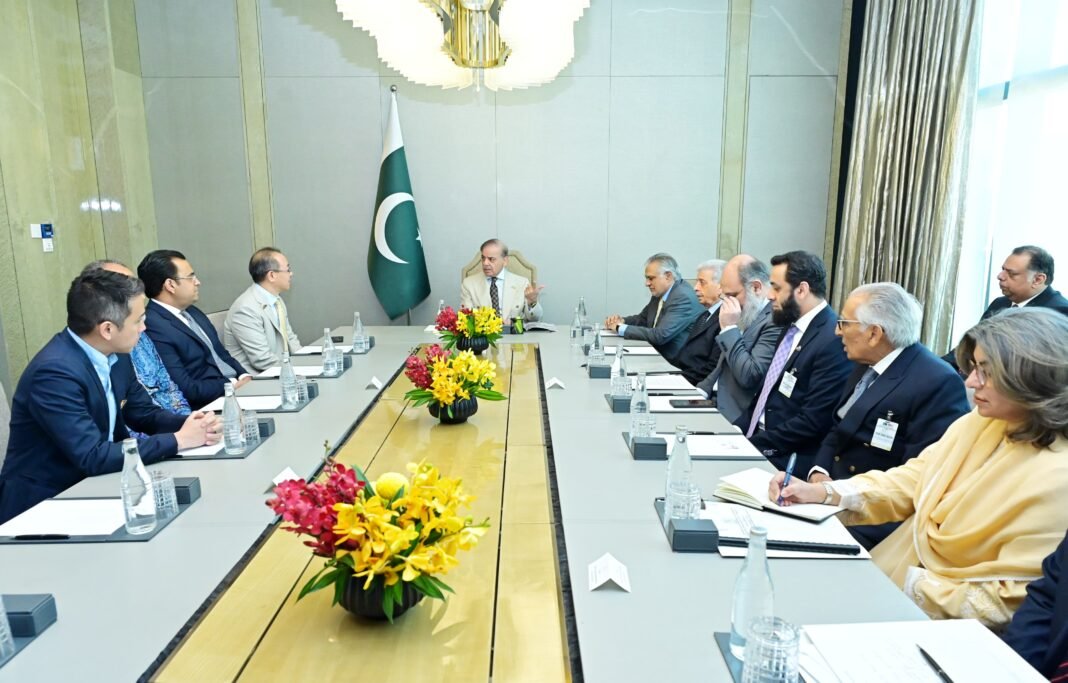
Islamabad, – United Nations Human Settlements Programme (UN-Habitat) celebrated World Habitat Day 2025 under the theme “Urban Solutions to the Climate Crisis.” The day, observed annually on the first Monday of October, highlights the collective responsibility to make cities inclusive, safe, resilient, and sustainable in the face of growing urban challenges. The event was convened in collaboration with Shehersaaz bringing together representatives from government institutions, civil society, academia, and development organizations to deliberate on how cities can effectively respond to the escalating impacts of climate change.
Dr. Shezra Mansab, Minister of State, Ministry of Climate Change and Environmental Coordination as a Keynote Speaker, emphasized that “the New Urban Agenda provides a transformative framework for building inclusive, safe, resilient, and sustainable cities. Pakistan must integrate urban planning as a central tool of governance, moving beyond short-term fixes to long-term resilience.”
Speaking at the occasion, Jawed Ali Khan, Senior Advisor and Habitat Programme Manager, UN-Habitat, noted that “climate disasters are colliding with rapid urbanization, creating crises in housing, infrastructure, and basic services. Ms. Almas Shakoor, Executive Director, Shehersaaz, remarked that “Cities must be planned and managed with climate adaptation at their core.” She highlighted ongoing initiatives focused on urban climate adaptation and community-based resilience in Pakistan. Dr. Khalid Zafar, Member Planning, Capital Development Authority (CDA), highlighted the Authority’s ongoing initiatives to make Islamabad a greener and more climate-resilient city. He shared that CDA has introduced electric buses to promote clean and affordable public transport and is developing a safe bicycle route network across the city to encourage sustainable mobility.
The highlight of the event was a panel discussion on ‘Urban Solutions to the Climate Crisis’, moderated by Faiqa Aziz from UN-Habitat. The session brought together prominent experts and policymakers, including Ch. Anwar, Chief Planning, Ministry of Planning, Development and Special Initiatives; Dr. Zafar Iqbal Zafar, DG Planning, CDA; Idrees Mahsud, Member NDMA; Dr. Abdul Waheed, Head of Department, Urban Planning, NUST University; and Nusrat Nasab, CEO, Aga Khan Agency for Habitat (AKAH).

The discussion explored how Pakistan’s cities situated on the front lines of climate impacts can adopt integrated and participatory planning approaches to urban resilience. Panelists discussed the importance of risk mapping and early warning systems, updating master plans and land-use frameworks, and improving urban drainage and flood management. They emphasized data-driven planning, community preparedness, and behavioral change as key enablers of resilience. A strong consensus emerged on combining infrastructure development with nature-based solutions, such as urban forests, green belts. The panel underscored the importance of governance reform, institutional coordination, and innovative financing mechanisms to drive urban climate action.
To engage younger generations in the conversation on sustainable cities, UN-Habitat also organized the 24th World Habitat Day Children’s Drawing Contest on the theme “My Home, My City.” The competition provided students with an opportunity to creatively express their ideas for better homes and cities. The winning entries were recognized during the event, and the selected students were awarded shields and certificates for their participation.
The observance concluded with a reaffirmation of the collective commitment to build cities and human settlements that not only withstand the challenges of climate change but also offer hope, dignity, and opportunity for all.
Sohail Majeed is a Special Correspondent at The Diplomatic Insight. He has twelve plus years of experience in journalism & reporting. He covers International Affairs, Diplomacy, UN, Sports, Climate Change, Economy, Technology, and Health.






![logo-1[1]](https://globalnewspakistan.com/wp-content/uploads/2025/01/logo-11-e1737618310315-300x187.png)